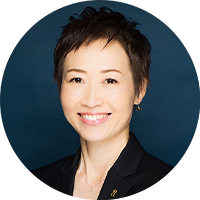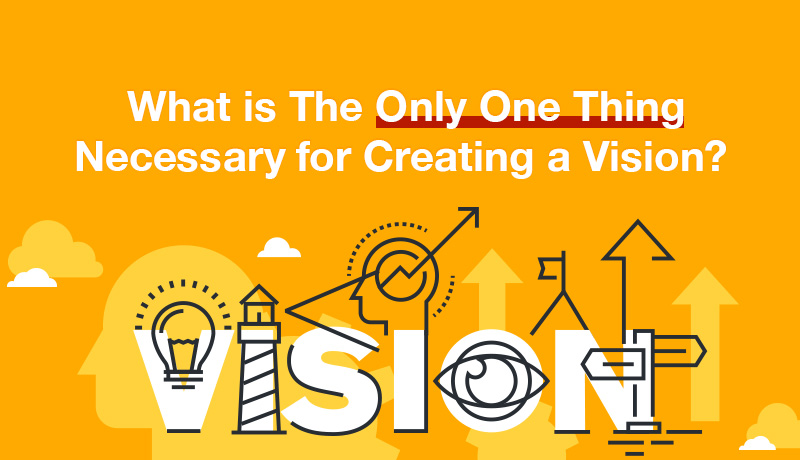Coach's VIEW is a business column authored by executive coaches in COACH A, aimed at providing valuable insights and effective approaches for leveraging coaching to foster organizational and leadership development. The column draws on the latest coaching trends and data, as well as insights from notable global publications on coaching.
What is The Only One Thing Necessary for Creating a Vision?

February 10, 2020

This article is a translation of the Japanese article posted in Hello! Coaching on October, 1, 2019.
It's now October.
There should be more chances to look back the first half of the year and realign the client’s goals.
Setting goal is also a very important part of the coaching process.
If the client can clarify an exciting vision of what he/she wants to achieve, and set goals, their actions will be naturally accelerated, and the coaching for them will be more effective.
If the client can have a vision that he/she strongly wishes to achieve and clarify the goals, the journey of coaching is already more than halfway towards success.
We all recognize how important it is to clarify the vision and set goals, but how much time does he/she spend for it during the journey of coaching?
What kind of techniques does the coach utilize when listening to the client's talk about their vision?
Three architects, three different approaches
Right now, my family and I have been planning to build a new house.
When we first started the plan, we had not figured out among ourselves what type of house we wanted and the plan was still vague. Then we visited three different architects to learn and collect more information.
Each of these three had a different approach in terms of communication.
Architect A asked us about family structure and minimum requirements by us and gave us the presentation of his initial plan later on. After this, he fine-tuned some points that we were concerned about. I got the impression that he was confident and specific about his design. However, he did not ask my family about what was important to us at all.
Architect B listened to us in a very gentle manner.
However, whenever we got excited talking about our dreams for the house, he kept pulling us back to reality with comments like "That's legally impossible", "That would be difficult to do under these conditions" or "This is a better way to do it instead".
Architect C contrastingly first asked us why we wanted to consult her. Then she patiently listened to our rambling by taking notes until it ended up in three hours.
While talking to Architect C, images of our family living happily in our new house were kept popping into my head for some reason.
As you could probably guess here, we decided to go with Architect C in the end.
After that, as we continued communicating with Architect C, I also started to contemplate regarding vision clarification and goal setting in coaching.
- Do my clients feel that they are actively sketching out their own vision?
- Am I not taking an approach similar to Architect A or Architect B?
- Do my clients and I actually feel excited as we clarify the vision and set goals?
Why is it difficult to listen to someone's vision?
Leaving aside famous visionary leaders, I looked back over my experiences of coaching hundreds of business leaders. There were not so many who could talk about their own visions in an appealing and motivating way from the beginning.
Long-term visions tend to be vague especially for business leaders who have been immersed in their daily work.
You need not only listening skill but also patience and energy in order to keep listening to someone who talks about vague ideas.
Moreover, if you have your belief "The vision should be like this or that ", it becomes more difficult to hear things outside of that belief. Also, once you think "I understand what they are saying", you start to feel like you don't need to listen any longer and stop actively asking questions.
It might be surprisingly difficult for us to listen to someone who talks about the vision.
The Only One Important Thing for Listening to Someone's Exciting Vision
When I got the chance to ask Architect C what she thought was important when designing. She replied, "First I try to get rid of the client's stereotypes about houses."
Then she continued, "I spend time to talk to the client as much as possible. Just about their daily family life and their values in their family. Sprinkling throughout these casual conversations give me many hidden hints that can help me in figuring out the client’s sense and what kind of spaces they prefer.
If we apply it to coaching, coaches had better momentarily set aside the stereotype that everyone tends to build up--what Architect B might call it " common sense" or "pragmatically"--and just continue listening.
Also, I believe that talking about the client's vision does not mean simply building a dialog around the narrow focus on "the future". It means listening to their views on a wide range of topics from the past to the present, from hobbies to private life in order to explore together what the client truly wants to accomplish.
From these two points, the stance that I want to have as a coach is "not to be impatient" and "not to let the client hurry along" in their clarifying their vision and setting goals.
We are coaching clients in the context of business, so we tend to pay attention to deadlines, feasibility and plausibility.
However, if a coach focuses too much on these and feels rush, it will naturally affect the client. The ideal coaching environment that allows the client to freely express anything, might become a place of constricted communication that makes the exploration more difficult.
As a result, it might lead the client to create a "moderately exciting" vision and set goals that can be "reasonably" achieved.
Half-hearted visions and goals do not let clients have strong motivation to achieve.
As Architect C listened patiently to our talk about the image of the future house where we wanted to live, our vague concepts were slowly transmuted into words. Then we realized that we did not actually need some of the things that we had initially thought necessary.
I want to apply Architect C's style of vision clarification and goal setting to my coaching.
Through dialog, what was vague would become more clear and the goals you initially had might turn into different goals.
However, this modification of vision and goals are truly growth and progress for the client. Isn’t it extremely valuable for them to clarify what they truly want to achieve?
Once you could obtain what you truly want to do, your energy, creativity and performance would be unlimited.
Just concentrate on listening, be free from impatience and do not let the client hurry in talking.
These simple points will give birth to an exciting vision.
*Regardless of profit, non-profit or intranet, secondary use such as copying, diversion, selling etc. is prohibited without permission.
Language: Japanese
